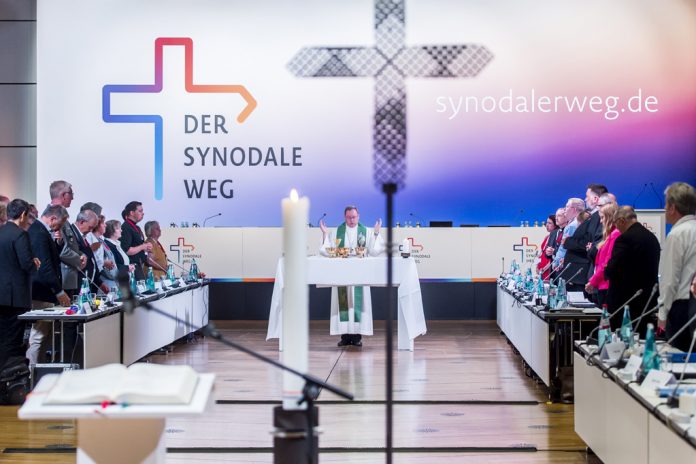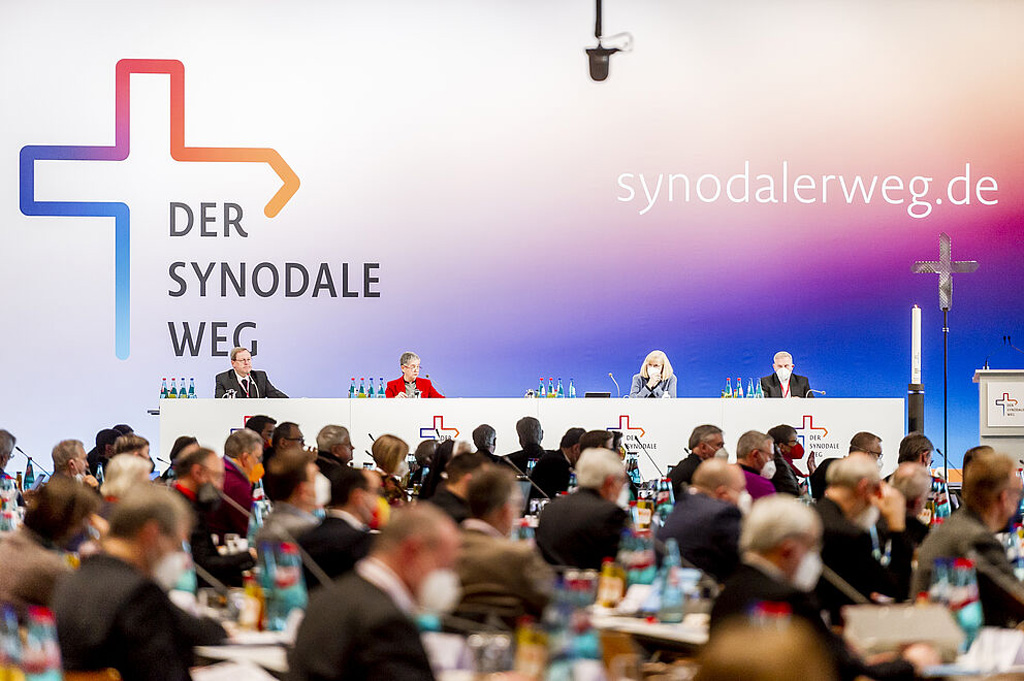Synodal Way – the Catholic Church’s renewal project in Germany
The continental phase of the worldwide synodal process, which began in October 2021 in every Catholic diocese in the world and will culminate in the 16th ordinary assembly of the Synod of Bishops in Rome, scheduled for October 2024, will continue until March. About two years earlier, the synodal journey in Germany began, in which some burning issues are being clarified.
It is to be hoped that the synodal process will not end with the next General Assembly of the Synod of Bishops in Rome, since when the Vatican published its motto and timetable on 21 May 2021 – “For a Synodal Church: communion, participation and mission” – it became clear that this would be the realisation of one of Pope Francis’ major ambitions for Church government. Already on 17 October 2015, in his address on the occasion of the 50th anniversary of the institution of the Synod of Bishops, Pope Francis stressed that “the synodal journey is what God expects of the Church of the 3rd millennium”. “To move forward together – lay people, pastors and the Bishop of Rome – is a concept that is easy to put into words, but not so easy to put into practice”. Pope Francis continues, “The world in which we live, which we love in all its contradictions and to whose service our vocation is called, is the world which demands that the Church increase her collaboration in all areas of her mission.” In the synodal Church, therefore, “the Synod of Bishops is only the most visible expression of the dynamic of communion which inspires all ecclesial decisions”.

In this sense, it can be argued that the synodality of the II. The general ecclesial dynamic of synodality, once again desirable since the Second Vatican Council, inspired the members of the German Bishops’ Conference (DBK) when they unanimously decided on it at their Spring General Assembly in March 2019, more than two years before the worldwide synodal process was announced, to commit themselves, together with the Central Committee of German Catholics (ZDK), to go through a synodal journey as the Catholic Church in Germany in order to clarify some of the burning issues in their local churches and to regain the lost trust of the faithful.
Why was this necessary?
After the Catholic Church had to face the issue of sexual abuse within the Church in the 2000s, first in the United States of America and then in Ireland, the problem has also caused a major crisis in the social image of the Catholic Church in Germany since January 2010. It was then that a letter written and sent by Fr Klaus Mertes SJ, the acting rector of the Jesuit Canisius College in Berlin, to more than 600 former students of the institution, after he had learned of a series of sexual abuses committed against children and young people by two former teachers of the college in the 1970s and 1980s, became public. In his letter, Fr Mertes writes that it was through talking to the victims that he came to understand how the experience of sexual abuse can leave deep scars on young people’s lives and how these sad experiences can damage the whole life histories of the young people concerned for decades. However, victims also express how liberating it is for them to start talking about what happened to them, even if the abuse happened in the distant past. For there are some wounds that time does not heal. With his letter, Klaus Mertes therefore wanted to contribute to ending the silence around abuse.
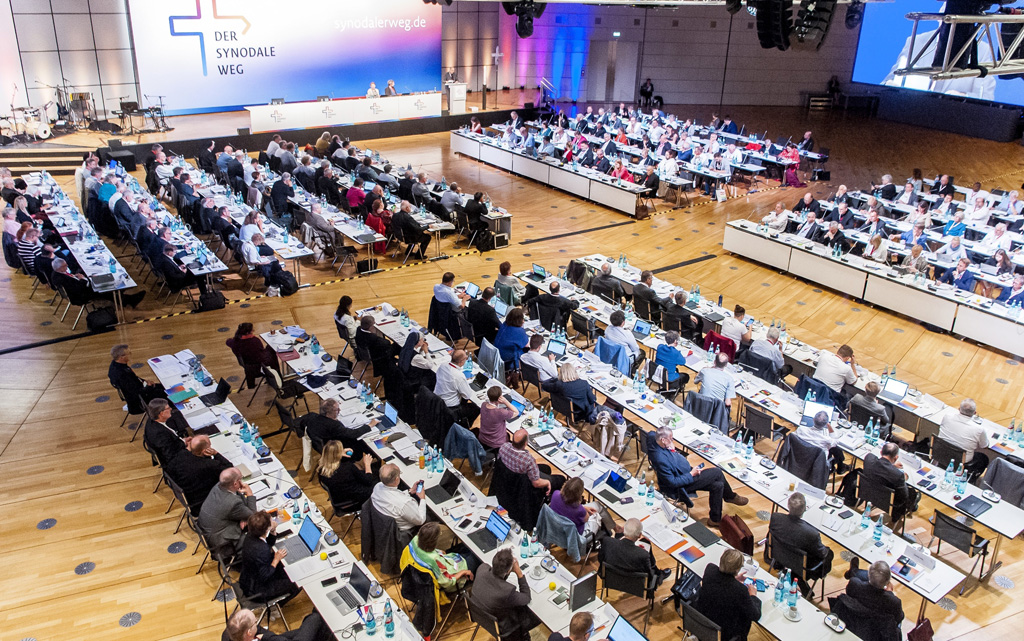
In the years that followed, the German Bishops’ Conference, in response to growing pressure from society, took a number of measures to address sexual abuse within the Catholic Church and to introduce preventive procedures.In March 2014, the Bishops’ Conference commissioned a research team of four academic institutes to clarify, among other things, whether there were or are structures and dynamics within the Catholic Church that are conducive to sexual abuse. The results of this interdisciplinary, so-called MHG research, which lasted for more than four years, were published by the German Bishops’ Conference in September 2018 under the title “Sexual abuse of minors by Catholic priests, deacons and male monks”. The results show that between 1946 and 2014, there were 3,677 victims of sexual abuse of minors and 1,670 accused victims of sexual abuse in Germany. Bearing in mind that the researchers examined the personal files of a total of 38 156 priests, deacons and monks, 4.4% of them were accused of sexual abuse. The authors of the study, who published the results of the scientific research, stress that “asymmetrical power relations and a closed system in the Catholic Church can be conducive to sexual abuse”. The shocking results of this wide-ranging study have had a direct impact on the launch of the synodal journey as a process of ecclesial renewal in Germany in 2019.
How does it work and what are its aims?
The Synodal Way is a structured form of dialogue for the conversion and renewal of the Catholic Church in Germany, seeking steps in the community to strengthen Christian witness in today’s society. To this end, the following four central themes and areas of activity were to be discussed and clarified: the question of ecclesiastical power and power-sharing; the question of priestly life today; questions of living sexuality; and the role of women in ecclesial ministries and offices. The synodal journey process started on 1 December 2019, the first Sunday of Advent, and was initially planned for two years. In the meantime, however, the need has arisen to continue the dialogue work on the path that has been started, and the 5th Assembly will now take place from 9 to 11 March 2023.
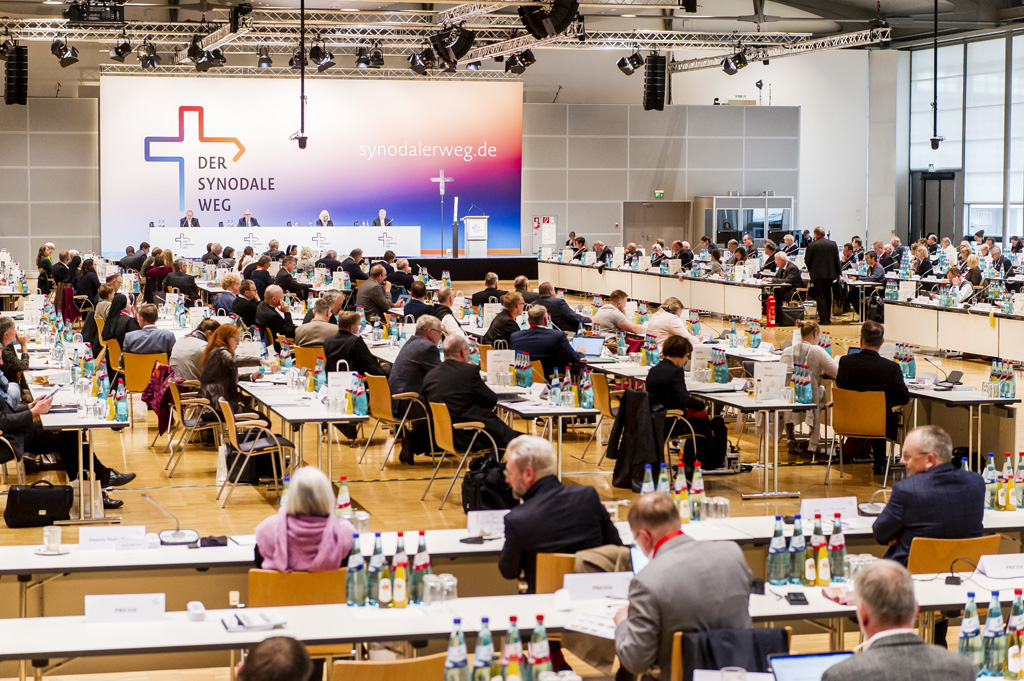
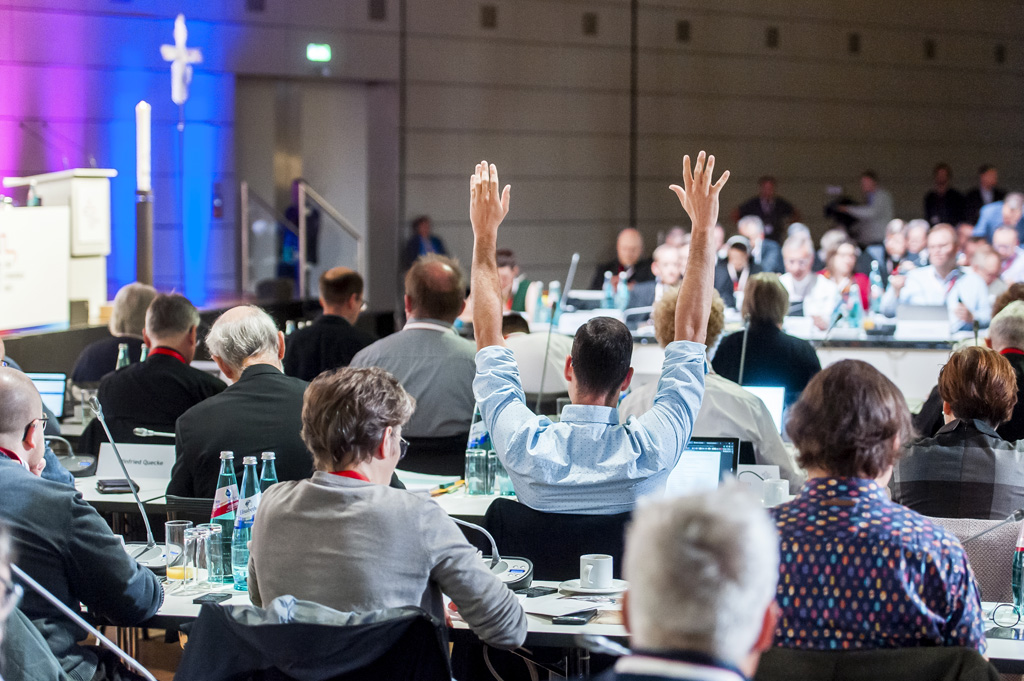
In its Statutes, the Synodal Way makes it clear that decisions of its General Assembly have no legal effect per se. The decisions do not affect the competence of the Bishops’ Conference and of the individual diocesan bishops to formulate legal norms and to exercise their magisterial office within their respective jurisdictions. And those decisions which have a relevance for the universal Church will, of course, be the competence of the Holy See to judge.
How does it relate to the World Synod?
The synodal journey in Germany and the process of the World Synod, which started two years later, have the same basic objective: the renewal of the Catholic Church in the spirit of synodality. This process of transformation was launched at the Second Vatican Council, but it is not yet complete. The Catholic Church in Germany is naturally involved in the world synodal process and at the same time continues its internal project of renewal, which is by no means without tension, on the synodal path.

Despite the many criticisms of the German synodal path, it is already clear that the issues discussed here are not a “German speciality”. After all, German reform themes are also reflected in the positions of other countries in the world synod process. Thus, for example, in the local Catholic churches of the United States of America, Australia, Austria, Belgium, Ireland or Great Britain, the topics discussed in the German synodal way are also topical: the gap between clergy and laity, the negative impact of clericalism on the faithful, the question of the diaconate and priesthood of women, the negative perception of homosexuals and other orientations in the Church.
[In-depth theological analyses and related working papers related to the Synodal Journey in Germany are also available online in Hungarian thanks to the staff of Mérleg magazine: www.merleg.org.]
János Vik
The article appeared in Vasárnap 2023/10.
Source: https://romkat.ro/2023/03/07/szinodalis-ut-a-katolikus-egyhaz-megujulasi-projektje-nemetorszagban/?fbclid=IwAR1F-KzwKkbIlLqMyQ-DwMzHZC7a_RiQNFhROhgH88bs3Mh5JxDqVxUMP9s






